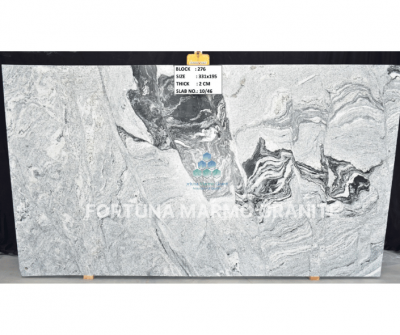What Is The Weight of A Granite Slab?
The Weight of A Granite Slab Granite has become the preferred choice in recent years for various applications within residential spaces, such as bathroom countertops, backsplashes, and kitchen surfaces. In addition to its aesthetic charm, this natural stone is exceptionally durable and exhibits outstanding resistance to heat, moisture, stains, and the rigors of daily use. Consequently, granite countertops have become a common feature in nearly every household, as they are well-suited for frequent use and are simple to maintain.
Granite is among the heaviest stones suitable for countertops, so it's essential to remember this when considering all of these aspects. Granite slabs tend to be heavier than many other materials because they lack air pockets found in wood. This essay will cover all you need to understand about granite countertops and the weight of slabs.
WEIGHT OF GRANITE SLAB PER SQUARE FOOT
The exact weight of a granite countertop or slab in a kitchen is challenging to determine. This is due to the fact that kitchen countertops are available in numerous designs, with some occupying more counter space than others. Rather, granite countertops are assessed in square feet, a unit of measurement that is widely utilized. The thickness of a granite slab is a significant factor to consider. In simple terms, thicker granite is more dense, which means it has a greater weight without increasing the square footage.
Most granite slabs come in thicknesses of either ¾" or 1 ¼". Granite slabs may have greater thickness, but their use is unusual and they tend to be more expensive. The usual granite countertop is ¾" thick which awards it a weight per square foot of nearly 13 pounds. However, if the thickness is increased to 1 1/4", the weight per square foot can go up to 18 or 20 pounds. In some cases, buyers can chose a 2" thick granite slab with a pounds per square foot weight of up to 30 pounds.
| Slab Weights | |
|---|---|
| Big Slab Weight | 300 kg. |
| Small Slab Weight | 145 kg. |
GRANITE SLAB WEIGHT
Understanding the exact composition of a granite slab is essential before determining its weight, particularly if you intend to use it as a reference unit. The most notable point is that granite slabs differ greatly in size at any given time. In other words, it is challenging to accurately ascertain the total weight of a granite block. To estimate the weight of granite slabs, several average measurement methods can be taken into account.
Black Forest Granite Panel
A granite slab is a solid piece of granite that can serve as a kitchen countertop, so the dimensions of any slab will depend on the specific counter space and slab size needed. Most granite exporters and suppliers first conduct a laboratory test to determine the granite's density prior to calculating the exact weight of the slab. Consequently, the outcomes are highly precise.A standard granite block measures 5 to 6 feet in length and nearly 9 or 10 feet in width. In other words, a slab of that size can cover an area ranging from 50 to 55 square feet. As previously noted, the thickness of the slab must be considered. Just multiply the weight for each square foot by the overall area to determine the weight of a granite slab. Examine the image that has been shared, for example.
DID YOU KNOW?
GRANITE OR QUARTZ COUNTERTOPS: WHICH IS HEAVIER?
Granite and quartz are the leading choices for kitchen countertops. The question of whether granite or quartz slabs possess greater weight is intriguing. When comparing two slabs of the same dimensions, the density of each is a crucial factor. It is evident that a slab with higher density will typically outweigh one with lower density. The densities of quartz and granite are generally comparable. Granite exhibits a slightly higher density, ranging from 2.7 to 2.8 grams per cubic centimeter, while quartz measures at 2.65 grams per cubic centimeter. This suggests that while granite slabs may be marginally heavier, the difference is not substantial. Despite the availability of various countertop materials such as quartz, marble, and granite, granite is often regarded as the superior option due to its durability and aesthetic appeal. Its scratch resistance makes it suitable for a wide range of applications, whether in residential kitchens or commercial environments.
Factors Influencing The Weight Of Granite Slabs
1.Thickness
The thickness of a granite slab is a primary factor influencing its weight. As the thickness increases, so does the weight. Typically, granite slabs have a minimum thickness of 2 cm, but for specific applications, clients may request thicker slabs, such as 5 cm, which will significantly increase the overall weight due to the larger volume.
2.Dimensions
The weight of a granite slab is also contingent upon its width and length. Larger slabs naturally weigh more than their smaller counterparts. Furthermore, oversized slabs may necessitate additional support during the installation process.
3.Density
Granite is classified as a dense igneous rock. The specific type of granite and its mineral composition can affect its density. Consequently, slabs with a higher density will exhibit greater weight compared to those with a lower density.
4.Edge Treatment and Finish
Granite slabs can undergo various finishing processes, including leathering, polishing, or honing, which may slightly increase their weight. Additionally, any specialized cuts or edge designs will contribute to the overall weight of the slab. These processes may also slightly increase the weight of the slab due to the additional material and treatment involved. Furthermore, intricate cuts, edge profiles like bevels or ogees, and additional design elements can contribute to the slab's overall weight.


